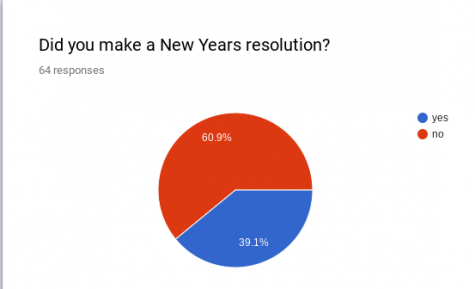Tired of a New Year and The Same You? Let’s Chat!
With 2019 being in full swing, the gym memberships are up, a lot less caramel lattes are being bought, and a lot more books are being read. The new year gives hope to everyone for a place to start their goals they’ve put off. So, why do so many people end up giving up on them? And why are too many people afraid to set New Year’s Resolutions?
To start, let’s look at the word “resolution.” To break it down, there are two parts to this word: re and solution. According to dictionary.com, the prefix “re-” can be defined as “back” or “backwards,” and the word “solution” is defined as “solving a problem or dealing with a difficult situation.” And when combining these, it is re-solving a problem, and here is where the myth is busted–if we’re trying to simply re- solve a problem that we have already tried to fix in the past, do you really think it’s simply going to change because the clock struck twelve?
The answer is no.
Why wait from 11:59 to turn to midnight on December 31? Why not just set a goal when you want to?
According to ADM High School students:

There’s no better time than whenever there’s time to set and obtain a goal. This is your wake-up call to be better students, athletes, teachers, friends, or even simply a better person! We all have the power to make a change in our life by stopping our bad habits, our distractions, and our excuses.
How do you stop a bad habit?
There are two ways to go about this:
- Cold Turkey–Stop it completely, whatever it is. Have no contact, talk, or association with whatever the habit is. There could be some really bad physical withdraws (especially if it is something like caffeine–you will probably get headaches because your body is used to using that daily), or there could also be emotional withdraws (if you want to stop binge-watching shows on Netflix, you might be crabby or bored from stopping that abruptly). The benefits of this way are that the pain is at the beginning of the process, and then once you are able to do it for about a week things get a lot easier.
- Ease your way into it–Gradually put limits on yourself. (I’m going to use the example of caffeine) If you normally drink four bottles of pop a day, then take it down to three and add in a healthy substitute, and then after a week only drink two bottles of pop, until you don’t feel like you need it anymore.
How do you stop distractions?
The biggest distraction for our generation is the constant connection to technology, whether it’s our school computers, social media on our phones, or trying to stay up with all the group chats we’re in–it’s distracting. It can distract from being productive and getting homework done, it can distract from spending time with family, and it can even distract from deep relationships we can develop with the people we are around. So, in order to limit the distractions, and allow yourself to be aware that you are being distracted, set limits on your phone. Turn it off, and let yourself be present in whatever it is you are doing.
How do you stop excuses?
It starts with asking yourself what you can do better in situations you find yourself frustrated or mad at other things or people. Instead of saying, “Well, I need the four pops because I have to get up early every day to help my mom,” ask yourself, “What could I do so that I’m not so tired and I have more natural energy for each day?” Or, if you’re one to say, “Yeah, I really need to start doing that, but I’m just really busy,” ask yourself “Where can I budget in time to make sure that I fulfill this goal I want to work toward?” This is probably the hardest part of anything–we humans are so quick to make excuses instead of trying to get better, myself included. However, once we start identifying situations where we are making excuses instead of fulfilling a task or goal, we have to consciously choose to change our thinking and stop with the excuses.
It’s good to have goals and to work toward bettering ourselves. It keeps our minds sharp and constantly correcting. However, breaking habits, or creating new healthy habits isn’t easy–it requires a lot of reminders, perseverance and dedication daily. In the end, however, it’s worth creating a solution something you want to change in your life.













